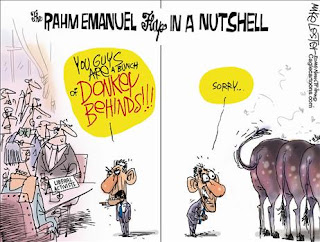“I’ve given up everything for this. It means everything to me. It’s why I work hard. I got what I came here to do. I got a gold medal; I have what I want.”
Tears have a funny way of releasing things. Lindsey Vonn’s tears were no different. As she stood at the bottom of the mountain at Whistler, Olympic Gold as her prize, the Women’s Downhill Champion’s tears shone brightly in the sun.
She must have been thinking of all the years she spent training for this moment. She must have been thinking of all the expectations that were placed on her shoulders as the favorite for these Games. She must have been thinking of the pressure that mounted as she sustained a shin injury just two weeks before the Games began.
She had been single-minded in her goal of becoming the world’s best women’s downhill skier. She had disciplined her body and her emotions for years as she trained for these Games. And she had persevered through intense suffering and setback. And now she stood as Olympic Champion.
Simply put, Lindsey’s tears were tears of joy, and release, and satisfaction. She had every right to shed them, for this was her moment, one to be applauded and admired. Her tears were the sweet, crowning jewels of her Olympic glory.
Here’s a truth we all know, and one Lindsey either suspects or will soon discover: Olympic glory fades. So does the glory from being a successful preacher, or pastor, or writer, or musician, or businessman, or businesswoman, or student. We all strive for perishable wreaths at different times in our lives. And we strive for them in vain.
You know well the passage where Paul compares himself to an athlete. He writes:
Do you not know that in a race all the runners run, but only one receives the prize? So run that you may obtain it. Every athlete exercises self-control in all things. They do it to receive a perishable wreath, but we an imperishable (1 Cor 9:24-25).
This echoes another passage, perhaps penned by Paul as well:
Let us lay aside every weight, and sin which clings so closely, and let us run with endurance the race that is set before us, looking to Jesus, the founder and perfecter of our faith, who for the joy that was set before him endured the cross (Heb 12:1-2).
So we gain an imperishable wreath when we are single-minded in our pursuit: to obtain the prize promised by the gospel. We gain an imperishable wreath when we lay aside the sin that clings to us, exercising self-control in all things. And we gain an imperishable crown when we persevere in our race, enduring suffering as it comes, following Jesus every step of the way.
We may imagine that the bottom of our mountains will bring tears as joy and relief as well. But the tears we shed are simply an expression of a deeper longing within us, a longing that will one day be satisfied. Our tears today are just like anything in this world: shadows of a brighter reality, or echoes of a sweeter song.
Our prize is a place with a Person, and this Person will “wipe away every tear from their eyes … neither shall there be crying … for the former things have passed away” (Rev 21:4). It is in that day that we will wear our imperishable crowns of righteousness, because of Him and for His sake. And in that day we will be satisfied by our greatest joy: Jesus.
Congratulations to you, Lindsey. May you find Jesus as your imperishable wreath when the glory of your triumph begins to fade. And may we all see your inspiring example as a reflection of the higher call we have on our lives. May we run the race with single-mindedness, exercising self-control, disciplining our bodies for the sake of the gospel, and persevering through suffering, all so that we might obtain the prize we seek: eternity in the presence of the One whose glory never fades.
Gospel Coalition


















